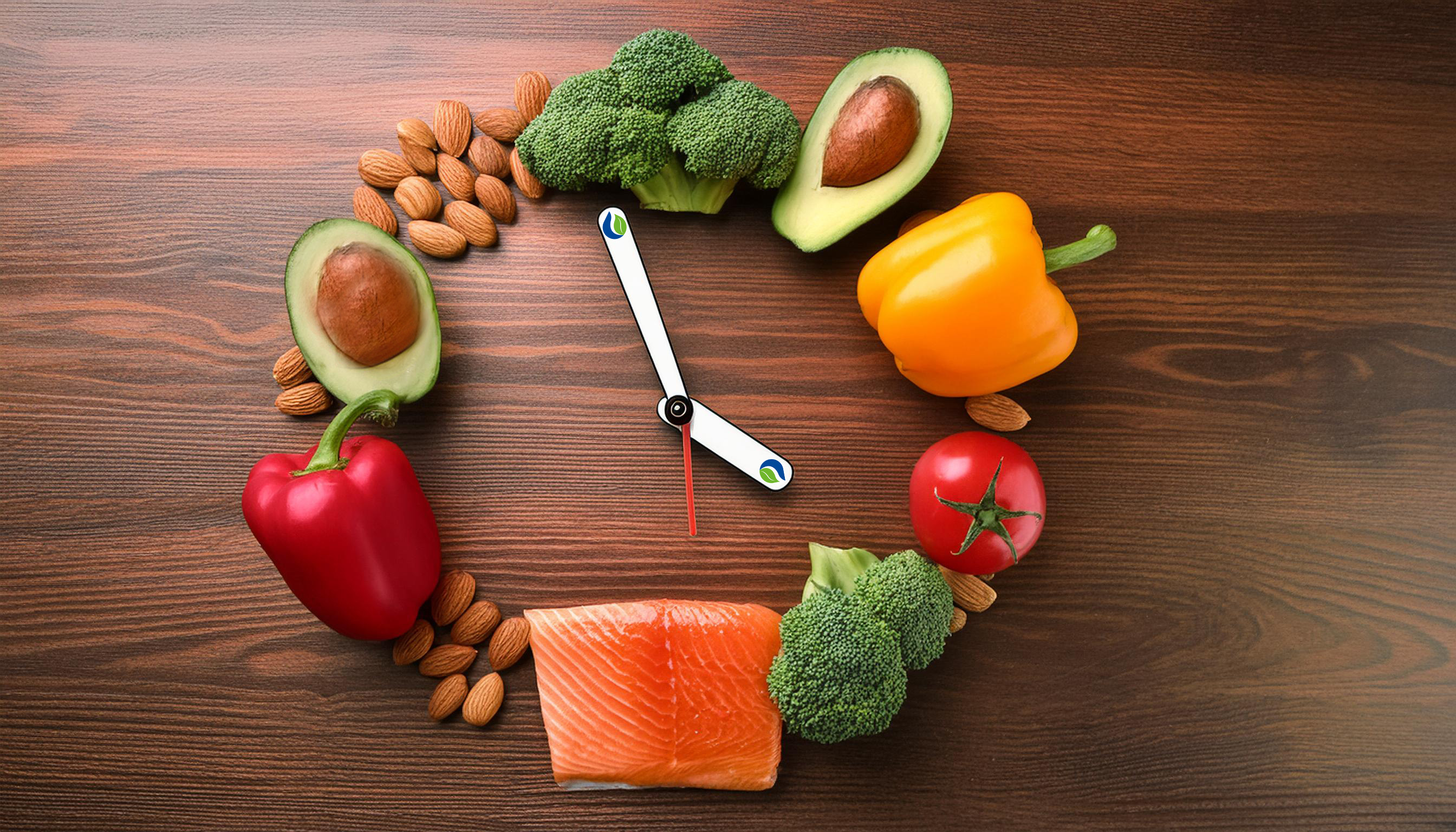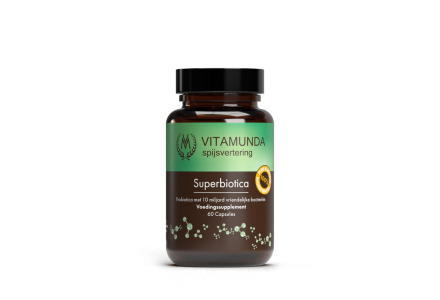
Welcome to the second part of our series on Intermittent Fasting. In our first blog, we discussed the theory behind Intermittent Fasting and explained why this method can be good for your overall health. In this blog, we will delve deeper into the practice of Intermittent Fasting and give you practical tips for getting started with it. The word "fasting" can immediately conjure up thoughts of hunger and deprivation for many people, but that doesn't have to be the case at all. If you build it up slowly and start slowly in the first few weeks, you will find that it is usually not that bad. In this blog, we'll discuss how you can incorporate Intermittent Fasting into your daily life in an achievable and healthy way. Read on to learn more about the practice of Intermittent Fasting.
What does Intermittent Fasting mean in practice
Intermittent fasting (IF) is an eating pattern that alternates periods of fasting with periods of consuming food. Unlike traditional diets, which usually focus on what you eat and counting the calories of your food, Intermittent Fasting focuses on when you eat. This eating pattern can take different forms, each with its own schedules and methods. In this blog, we focus on the practice of Intermittent Fasting, after talking about the theory in the previous blog. We will keep the 16/8 method here because it is the most common among people who want to start Intermittent Fasting.
Before you start
Intermittent Fasting is not suitable for everyone, People with certain medical conditions (including diabetes), pregnant women, and people with a history of eating disorders should exercise caution and always consult a doctor before starting Intermittent Fasting.
Preparation and adjustment: 2 - 5 weeks
With the 16/8 protocol, you fast for 16 hours and have an 8-hour eating window. Before you get to that point, it is wise to prepare for this by stopping eating sugars as much as possible and limiting your carbohydrate consumption.
If you want to do the fast to lose weight, you must make sure that you do not take in more calories during meal times than you took in before the fast. So it is recommended that you eat fewer carbohydrates, but more protein and healthy (unsaturated) fats. This will keep you satiated for a longer period of time and make you less likely to feel hungry during the fasting period.
You may drink unlimited water, coffee and tea during the fast. But coffee and tea without milk and sugar because this would break the fast. So try to get used to drinking coffee and tea without milk and sugar this week if you want to continue drinking this during your future fast. It is wise to watch your sugar consumption carefully this week anyway because unrefined sugars are not healthy for you and you usually ingest too much of them.
Also, start observing your eating patterns. This will help you understand at what times you normally eat and how you feel. Determine how many eating occasions you have per day and try to reduce this to 3 over the course of these weeks. So that then also means no more snacks, such as having coffee. Depending on the number of eating moments you start with, this period can be longer or shorter. Try to take 1 meal out per week.
Depending on your body condition and insulin sensitivity, this period may be easy or difficult for you.
Building up Lent: 2 - 5 weeks
Now that you are accustomed to eating 3 meals a day, you can start choosing in which period you want to eat and in which period you want to fast. You can take advantage of the fact that everyone is actually already fasting for one period, namely during sleep.
For example, start with a 12/12 schedule, which in practice usually means you don't eat after the last meal in the evening. Then you start increasing the fasting period by eating breakfast later and later each time, until you are ready to skip breakfast and from then on you are at 2 eating times a day.
Depending on your body's reactions, you can slow down or speed up or build up the fast from 12/12 to 13/11 to 14/10 until you finally reach 16/8 (16 hours of fasting / 8 hours of eating). There are apps for your phone that can track for you how long you are fasting per day and display it in daily, weekly and monthly charts.
Common Body Reactions:
Feeling hungry: Especially during the first few days or weeks, you may experience strong feelings of hunger because your body is used to eating at certain times. Keep in mind that feelings of hunger come and go in waves. So it may well be that you feel hungry at night before going to bed, but that it has disappeared the next morning when you get up.
Drinking plenty of water or tea or black coffee can help reduce feelings of hunger. And be sure to eat nutritious and filling meals during your eating window.
Fatigue and Irritability: You may feel tired or irritable, especially in the early stages, as your body adjusts to using fat reserves for energy instead of energy from carbohydrates and sugars.
In any case, get enough sleep and try to minimize stress. Light exercise such as walking can also help boost your energy levels.
Headaches: Some people may experience mild headaches as their bodies adjust to the new diet. Therefore, make sure you at least stay hydrated (drink water).
Reduced concentration: In the initial stages, you may find that your ability to concentrate decreases. This usually improves as your body adjusts. In the beginning, try to schedule tasks that require a lot of concentration during your eating window.
Digestive changes: Changes in your diet can lead to changes in your digestive system, such as constipation or bloating. Ensure adequate fiber intake and stay hydrated. Probiotic foods such as yogurt or a probiotic supplement can also help.
Listen to your body
As mentioned earlier, Intermittent Fasting is not suitable for everyone. If you don't have any (medical) conditions, but still experience severe symptoms despite building up slowly, stop fasting and consult a doctor or health professional to assess whether Intermittent Fasting is right for you.
Reaching 16/8
If you have achieved the 16/8 schedule, your body is already somewhat accustomed to fasting. Sustaining this schedule can be challenging, but with the right strategies, you can successfully integrate it into your daily routine. Here are some tips to help you maintain fasting:
Be consistent: Try to keep your fasting and eating times about the same each day. This will help your body adjust to the new routine.
Hydration: Drink plenty of water throughout the day. This not only helps suppress hunger pangs, but also supports your overall health. Since you often drink extra water during fasting, it is important to drink good quality water. Meditech Europe offers many products in the field of water and water filtration. Think for example of our water jugs with filter and our drinking bottles with built-in filter.
Unsweetened herbal teas and black coffee are also good options during fasting and can help reduce hunger pangs.
Eat Balanced: Make sure your meals are nutritious and balanced, with plenty of vegetables, fruits, protein and healthy fats. Avoid processed foods and sugary snacks. These can increase your feelings of hunger and cause your blood glucose and energy to fluctuate.
Listen to your body: It is normal to feel hungry occasionally, but if you are constantly hungry, consider revising your eating window or providing more nutritious meals. If you feel extremely tired, consider adjusting the intensity of your fasting or consulting a doctor or health professional.
Exercise: Regular exercise can help maintain your energy levels and improve your overall well-being. Try light to moderate exercise such as walking daily.
Stress management: High stress levels can make fasting more difficult. Try managing stress through relaxation techniques such as meditation, breathing exercises, or hobbies you enjoy.
Flexibility: Be flexible with your schedule for special occasions. It's okay to occasionally adjust your fasting schedule for social events. And the occasional "cheat day" can help you keep up the fast in the long run, as long as you return to your regular schedule afterward. Even if you deviate on weekends and fast during the week, it still has positive effects.
By following these strategies, you can more easily maintain your 16/8 Intermittent Fasting schedule and continue to experience its benefits. Remember, it is important to listen to your body and make adjustments as needed.
Support from nutritional supplements
Nutritional supplements can help ensure you get all the essential nutrients during Intermittent Fasting, especially if your nutritional intake is limited during your eating window. Here are some supplements you can consider to support your health during Intermittent Fasting:
First, consider a good multivitamin, which can help make up for vitamin and mineral deficiencies, especially if your dietary intake during your eating window is not always varied. Optionally, you can supplement this with extra vitamin C and minerals such as magnesium if you expect to have deficiencies of those.
You can also consider taking probiotics to support healthy gut flora, which is important for digestion and the immune system.
Since your body is also detoxifying somewhat with Intermittent Fasting anyway, it may be helpful to support the liver in this process. Examples include support from turmeric supplements and milk thistle. Spirulina and chlorella can also provide valuable support when it comes to detoxification in terms of heavy metal detoxification.
In short, supplements can be a valuable addition, but they are not a replacement for a healthy and varied diet.
Conclusion
Intermittent Fasting is a flexible eating pattern that focuses on when you eat rather than what you eat. The 16/8 method, where you have 16-hour fasts and an 8-hour eating window, is a popular and accessible way to begin Intermittent Fasting.
To start Intermittent Fasting successfully, preparation is key. Start by adjusting your diet by gradually reducing the number of meal times and adjusting your diet to healthy, nutritious and filling meals. Hydration is crucial, so drink plenty of water during your fast.
Nutritional supplements can support your health during Intermittent Fasting. Listen to your body and be prepared to adjust your schedule if you experience negative reactions.
With consistency and the right approach, you can experience the benefits of Intermittent Fasting and adopt a healthier lifestyle. Meditech Europe has been a trusted name in nutritional supplements for many years and is ready to advise you on this. Even if you want more information about Intermittent Fasting, you can of course always contact us. We will be happy to help you.









